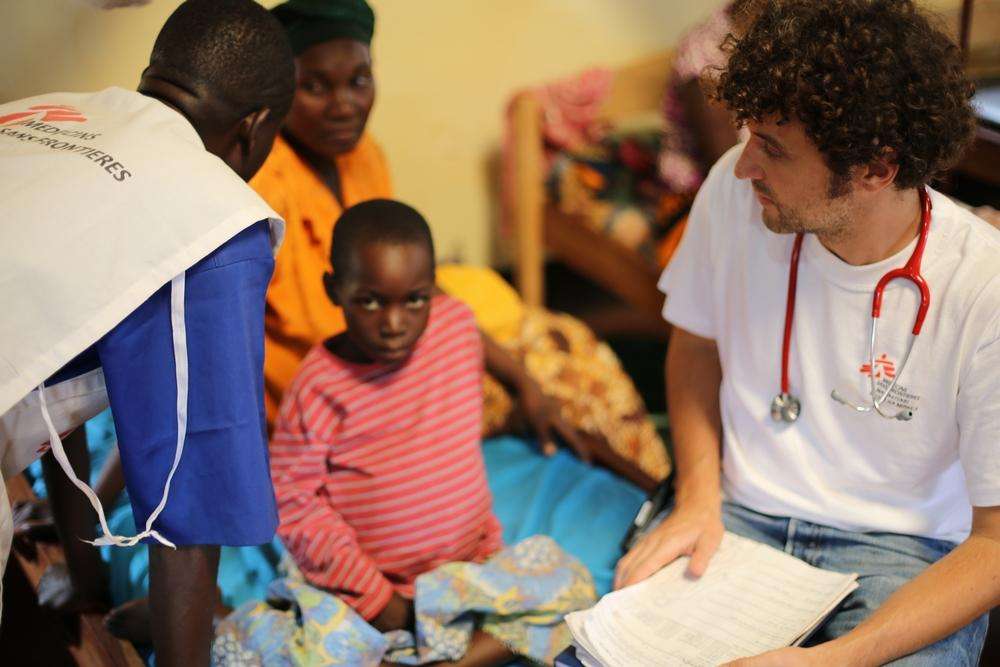Medical Team Leader Katy Brown returned from Tanzania in February. It was her eleventh emergency placement with Doctors Without Borders/Médecins Sans Frontières (MSF), this time assisting refugees who have fled the unrest in Burundi.
Katy Brown is counting the missions she’s done. She knows it’s 11 but keeps coming up short. There was South Sudan three times, Chad, Congo twice, Philippines, Cameroon twice and now Tanzania. Ten. She looks puzzled but has just spent close to 30 hours flying back to Australia. She looks at her fingers and counts again. Ten. What’s missing? CAR! There it is, the Central African Republic.
When you’ve done 11 field placements it’s hardly surprising that they’d blend into one. But while they were all different, there is a common theme. “They’re always emergencies—nutrition, mass vaccinations, disaster relief—or the openings of new projects,” Brown said.
Despite ten of her missions being in Africa, this was Brown's first time in Tanzania. It was a whirlwind emergency placement from December to February working as the medical team leader in the Nduta camp assisting refugees fleeing the unrest in Burundi.
Burundi’s instability comes as a result of President Nkurunziza’s re-election in 2015 to a third term – a move that opposition supporters consider unconstitutional. Violent clashes are ongoing and an estimated 200–250 cross into Tanzania every day.
MSF has been responding to this refugee crisis in Tanzania since May 2015, providing medical care, mental health support, and water and sanitation.
But while Brown's time in Tanzania was short, it was long enough to see a staggering influx of refugees to the camp. “When I arrived in December there were 29,000 refugees. There were approximately 43,000 when I left in February,” she said.
Obstetrics is an essential part of MSF’s care. And with an increase in refugees, there has been a corresponding increase in deliveries.
“We had 11 deliveries a week in our hospital when I got there. And 30 a week by the time I left,” Brown said. “Many women had fled Burundi while they were pregnant. They had had very stressful journeys with poor nutrition, little to no antenatal care and the constant threat of malaria unfortunately resulted in preterm labors.”
Sadly, the premature deliveries also increased the pediatric mortality rate. “There were children born that were just incredibly underweight,” Brown said. “A low birth weight baby is defined as less than 2500 grams (about 5.5 pounds) and we were dealing with extremely low birth weight babies as low as 900 grams (just under two pounds), whose chances of survival were very slim.”
In a refugee camp environment, and especially when so many new people are arriving every day, diseases can spread rapidly. Preventative activities such as vaccinations therefore became a priority.
“We vaccinated all children under five for measles, rubella and polio on arrival to the camp. Then we were able to start EPI (expanded program of immunization) to ensure full immunization of all children under one year,” Brown said.
Apart from vaccinations, Brown led a team of 11 international staff - doctors, nurses, midwives, health promotion specialists, laboratory technicians - and national staff (both Burundian and Tanzanian, which meant a mix of French and English was used), represented MSF at cluster meetings with other NGOs and health actors, and ordered medicine and supplies. She also oversaw the care of patients, many of whom presented with malaria, upper or lower respiratory tract infections, diarrhea, obstetric complications, or had suffered sexual and gender-based violence, referring complicated cases to the district hospital.
With many of her meetings held at the district hospital, Brown made use of the opportunity. “I started every day at the hospital. It gave me a good excuse to follow-up the patients we had referred there,” she said.
Now back in Australia, Brown plans to finish her Masters degree in public health and tropical medicine before returning to MSF. “I’m particularly interested in refugee health and there are lots of opportunities to work in that field with MSF,” she said.
Brown's desire to work with refugees is evident when she reflects on her time in Tanzania and what she saw with those fleeing Burundi. “Helplessness,” she said. “The people had lost so much: their jobs, homes, social structure, family members and independence. They arrived with nothing and everything had to be provided for them – their food, water, shelter, health care… Many people had come from a city or large town where they had jobs and were providing for their families or were studying at university and now they have no control over their lives or what is going to happen to them. They are on this journey and there is simply no end in sight.”





